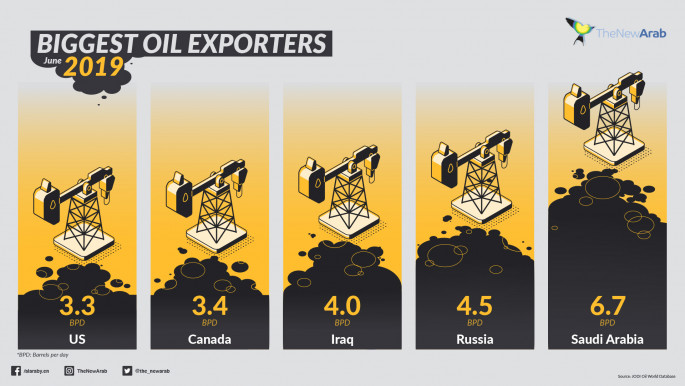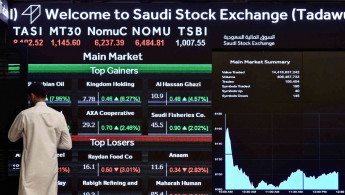Saudi Aramco claims to have hit $2 trillion value after government fuels 'IPO mania'
The valuation milestone, which defies widespread scepticism from investors, was coveted by Crown Prince Mohammed bin Salman ever since he first floated the idea of listing the world's biggest oil firm four years ago.
Aramco's market value crossed the $2 trillion level several times during the day before ending just below it, at $1.96 trillion, on Riyadh's Tadawul stock exchange.
Aramco shares closed up 4.55 percent at 36.80 riyals ($9.81), off their highs of the day, after soaring by the maximum allowed 10 percent on Wednesday.
"This rally is unlikely to be sustained," Capital Economics said in a comment on Thursday.
"Indeed, reports suggest that the authorities pressured local investors and wealthy families to purchase shares on the secondary market to ensure that the debut didn't fall flat," the London-based consultancy firm said.
The listing of Aramco, with its huge capital value, boosts the Saudi bourse to the ranks of the world's top 10.
|
But international investors have baulked at the company's high valuation, with investment research firm Bernstein putting its value at $1.36 trillion.
"Saudi Aramco is the largest, most profitable oil company in the world - but size is not everything," Bernstein said in a research note, highlighting the risk of "anemic" net income growth amid flat oil prices.
Aramco's market debut also comes with oil prices under pressure due to a sluggish global economy hit by the US-China trade war and record output by non-OPEC crude exporters.
Aramco's stock sale is the cornerstone of Prince Mohammed's ambitious strategy to overhaul the oil-reliant economy by raising funds to pour into megaprojects and non-energy industries such as tourism and entertainment.
The $25.6 billion proceeds from the Aramco IPO are expected to be channelled into the coffers of the Public Investment Fund, the Saudi sovereign wealth fund, which will invest it in mega projects.
'Patriotic duty'
Tadawul witnessed one of its most hectic trading sessions on Thursday, with some 418 million Aramco shares - worth $4.23 billion - changing hands.
Wealthy Saudi families are reportedly under pressure from the government to invest in the Aramco stock, with nationalists calling it a patriotic duty.
Aramco also dangled sweeteners for investors, including guarantees that it will distribute dividends of at least $75 billion a year until 2024 and the possibility of bonus shares if they hold on to the stock.
 |
|
| Read more: Can the Middle East afford to care about the climate emergency? |
Once one of the most secretive companies in the world, Aramco opened its accounts this year and announced that it posted $111 billion in net profit in 2018, making it the most profitable company in the world.
The energy giant's valuation was declared to be $1.7 trillion during the IPO process, putting it far ahead of other firms in the trillion-dollar club, including Apple and Microsoft.
Aramco's share surge lifted Tadawul's capitalisation to over $2.46 trillion, making it the seventh largest market ahead of the bourses in Canada, Germany and India.
Read more: Saudi crown prince's message is clear: Kingdom is open for business, not for political activism
Even so, the scaled-down Aramco IPO was a far cry from the blockbuster originally planned by Prince Mohammed.
The much-delayed stock sale, first announced in 2016, was initially expected to raise as much as $100 billion from the listing of up to five percent of the company.
The government's plans to raise additional funds by listing on a major international market are also on hold.
Follow us on Twitter and Instagram to stay connected





 Follow the Middle East's top stories in English at The New Arab on Google News
Follow the Middle East's top stories in English at The New Arab on Google News
![Netanyahu furiously denounced the ICC [Getty]](/sites/default/files/styles/image_330x185/public/2024-11/GettyImages-2169352575.jpg?h=199d8c1f&itok=-vRiruf5)
![Both Hamas and the Palestinian Authority welcomed the ICC arrest warrants [Getty]](/sites/default/files/styles/image_330x185/public/2024-11/GettyImages-2178351173.jpg?h=199d8c1f&itok=TV858iVg)
